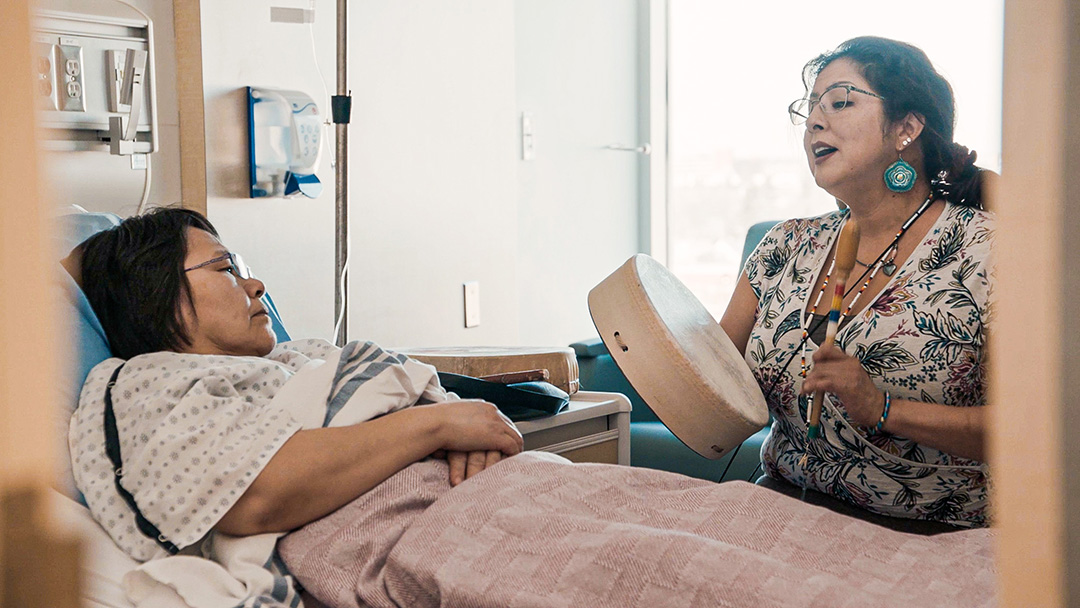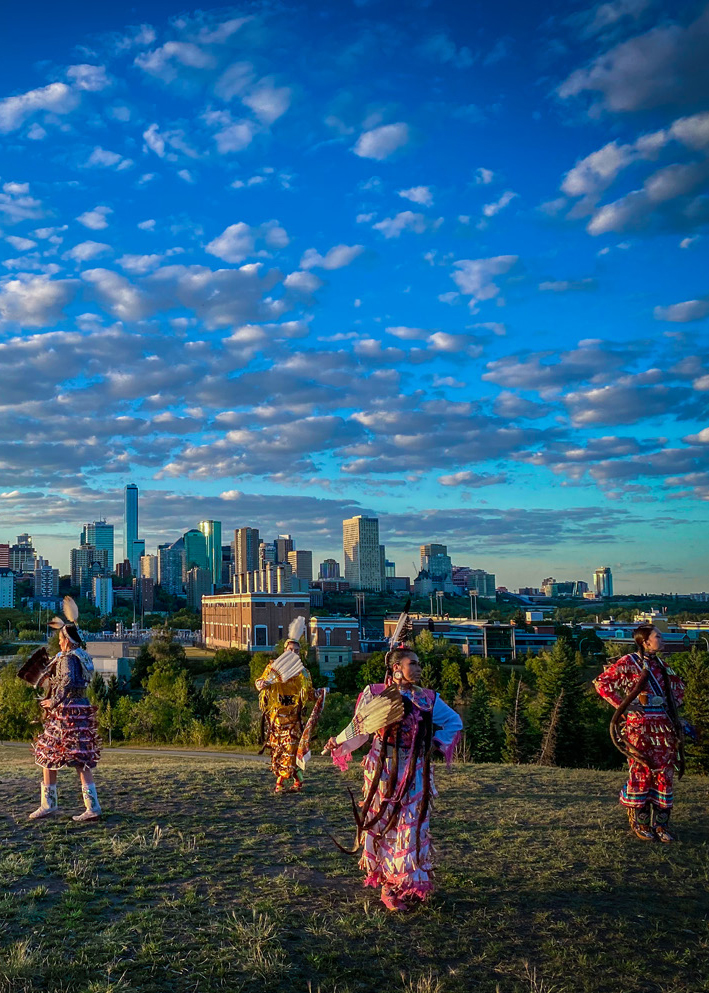

Working Toward a BetterPath for All Peoples
In partnership with Indigenous-led community organizations, the Royal Alexandra Hospital Foundation is honoured to help create and implement the Indigenous Cultural Partnership (ICP) at the Lois Hole Hospital for Women.
The Indigenous Cultural Partnership is a five-year pilot program that advocates for and seeks to establish a reconciled model of medicine—that is, equal representation and prioritization of Indigenous health and wellness knowledge systems and practices in sexual and reproductive health alongside the Euro-Canadian approach that is already in place.
Donors have seen great importance in this program, with funding rapidly approaching the $1.3 million needed to fully implement the Indigenous Cultural Partnership. Major corporate and group donors to the cause (in alphabetical order) include ATB Financial, Canada Life, The City of Edmonton, the Lois Hole Hospital Women’s Society, Parkland Fuel Corporation, The Stollery Charitable Foundation, Syncrude operated by Suncor, and TD Bank Group.
As a hospital at which 30 per cent of patients self-identify as Indigenous, and which serves as the tertiary women’s healthcare facility for Edmonton, central and northern Alberta, parts of northern BC and Saskatchewan, as well as the Canadian north, the Lois Hole Hospital for Women is well-suited to be a centre for change and a leader in providing equitable access to care for Indigenous women.
Since launching the pilot in 2022, the hospital has made strides by adding Indigenous leaders and team members such as Dr. Felske-Durksen as Clinical Indigenous Cultural Advisor and Helen Greene as Indigenous Cultural Liaison, fostering relationships in the community, revamping spaces and processes to include Indigenous space considerations, incorporating ceremony and Indigenous representation, and beginning work on new forms of coursework and care delivery.
Thanks to our many donors, the Lois Hole Hospital for Women is now the first tertiary care hospital in Canada to accelerate systemic changes in Indigenous women’s health.